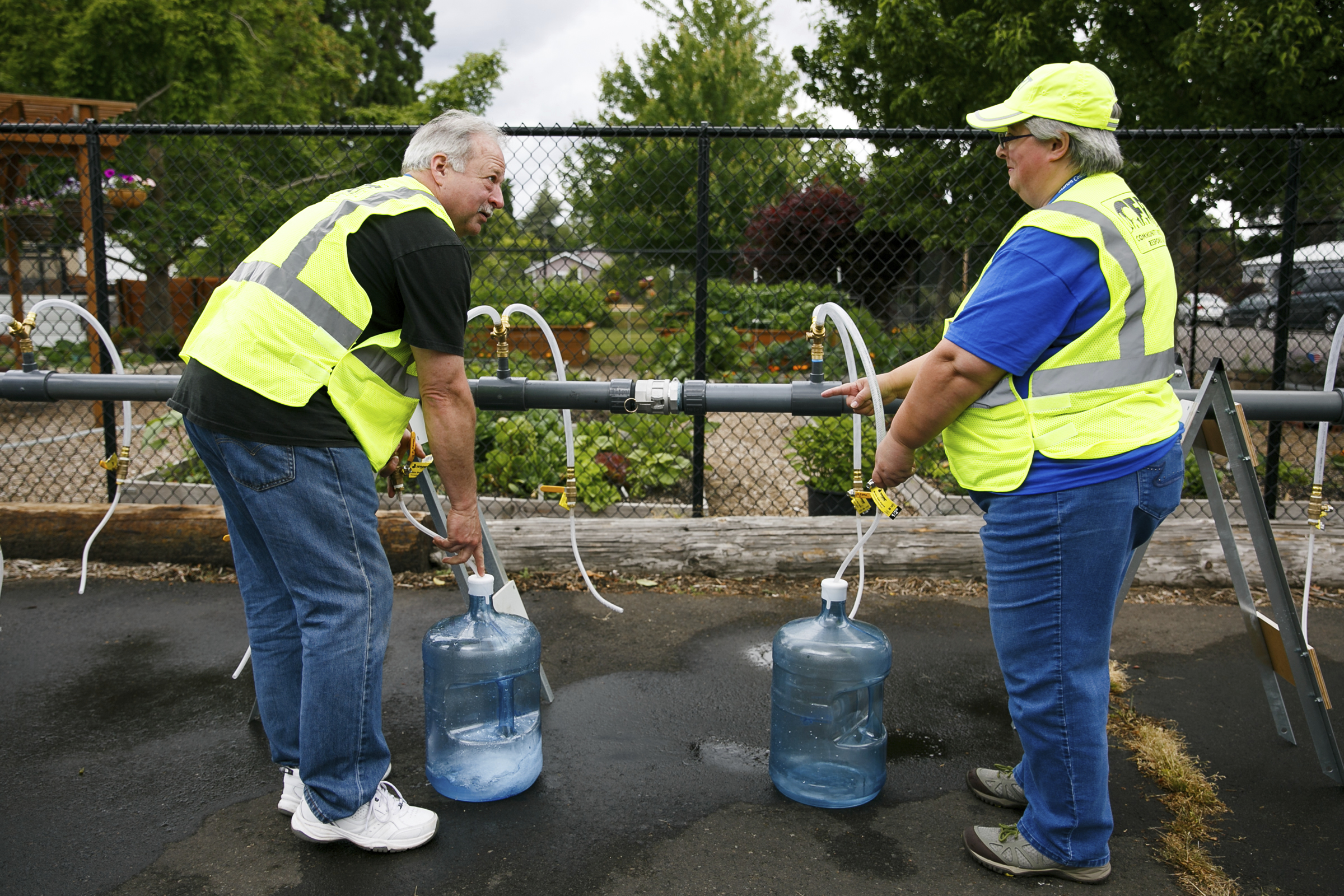
By TOM JAMES
Associated Press
SALEM, Ore. (AP) — The National Guard will hand out free water to residents who can’t drink tap water contaminated by an algae bloom in the Salem, Oregon, area, and state law enforcement authorities are looking into claims of price gouging after officials extended an emergency drinking water advisory. Gov. Kate Brown’s office said Thursday the water will be distributed to people at 10 locations in the state’s capital and Stayton because of toxins created by a bloom at Detroit Lake, a municipal reservoir.
Officials had earlier warned young children and people with compromised immune systems against drinking tap water in the area. At a press conference Thursday, Salem water quality supervisor Lacey Goeres-Priest said a best-case scenario would see the advisory lifted no earlier than after collecting safe water samples both Friday and Saturday. “This is a living thing,” Powers said, referring to the algae that creates the toxins. “We’re not going to speculate as to whether it’s going to get better or get worse.”
State law enforcement authorities are also looking into claims of price gouging on bottled water in the area, said Kristina Edmunson, a spokeswoman for the Oregon Department of Justice. Officials have received more than a dozen complaints so far and expect more as consumers become aware they can report the incidents. Alan Torga, of Salem, was one person who complained after he said employees at a supermarket asked his mother for $25 for a case of 36 bottles of water.
“She picked up on it and called me,” Torga said, adding that he told his mother not to pay the price. Later, at another supermarket, she saw employees selling gallons of water for about $13, he added. “It’s really unfortunate that people are getting gouged like this.” Brown declared a localized state of emergency in part to empower the attorney general to look into the complaints, said Bryan Hockaday, a spokesman for the governor.
The developments follow earlier confusion generated when officials used a wireless alert system to blast a cryptic warning Tuesday to “Prepare for Action” onto cellphones around the city, referring only to a “Civil Emergency.” Officials blamed the truncated message on a computer glitch that cut off crucial information: The alert was only for a limited water advisory. An update was issued about 30 minutes after the first alert, but shelves at many local grocery stores were stripped bare of bottled water within hours, and residents relayed stories of anxiously waiting to determine exactly what kind of civil emergency they faced.
City and state health officials will wait for two days’ test results to fall within safe limits before lifting the advisory, said Kenny Larson, a spokesman for the city of Salem. Officials emphasized that the toxins are only a risk for a limited segment of the population. “The water is safe to drink for the vast majority of Salem residents,” Larson said. Authorities say the effects of drinking the contaminated water for vulnerable people can include fever, headache, vomiting and bloody diarrhea.
Municipal water workers can dilute the water from the reservoir with water from other sources, but only to a degree, Larson added, meaning that the city will have to wait for the algae bloom to clear up naturally. In the meantime, Andrew Phelps, head of the state’s emergency management agency, had a message for retailers who might be charging higher-than-normal prices for water: “knock it off,” Phelps said.



















